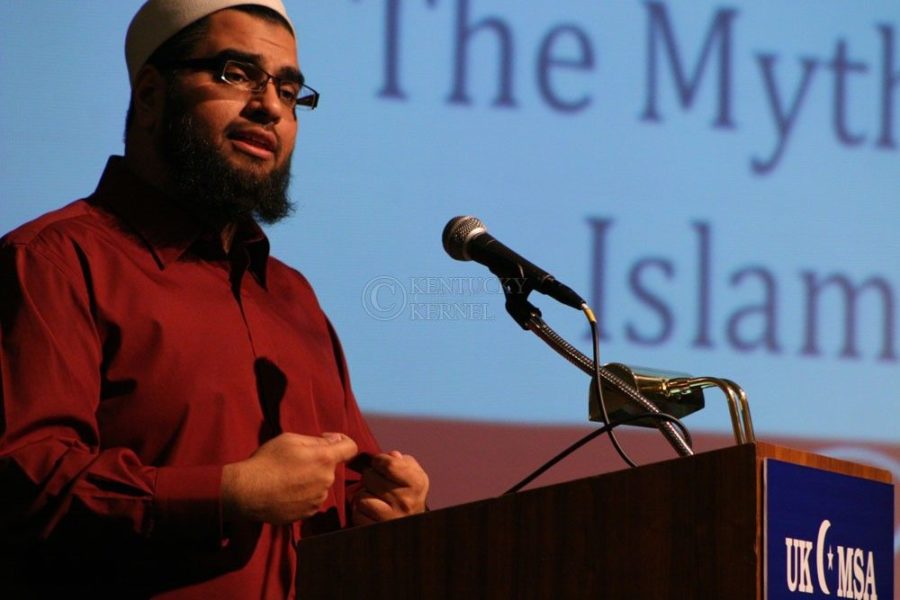Students learn myths and realities of Islam in America
November 16, 2012
By Morgan Eads
Students became informed at an event centered around the myths and reality of Islam and America on campus Thursday night.
Students came to hear from founder and director of the Qalam Institute, Shaykh Abdul Nasir Jangda, as well as UK’s own associate professor in modern and classical languages, Ihsan Bagby.
Students came to the program for reasons ranging from extra-credit opportunities to interest in the subject.
“My friends were hosting it and I wanted to support them, but the topic was also interesting and one that is concerning is to people,” first year dental student and Muslim Rod Erfani said.
One member of the Muslim Student Association expressed his feelings about the program.
“This is the first time we’ve allowed open questions. We were hesitant at first thinking that no one would do it, but we’re glad we did,” said Samir Nasir, economics senior and Muslim Student Association treasurer.
“Some might think they are offensive, but we like these questions. It is an opportunity to educate them.”
Erfani was impressed with the amount of information the speakers were able to give in a short amount of time.
“I thought it was very good for them to condense such a complicated issue and really cover all the basics,” Erfani said.
The event was opened with international studies junior and MSA member Salman Jeelani’s recitation of the opening chapter of the Qur’an, also known as the Surah Al-Fatihah.
Bagby then gave a history of Islam in America in his introduction and detailed the idea of being a Muslim and an American.
“About the 1980s the Muslim community in America slowly but decisively embraced the idea that they were going to be holy Muslims and holy Americans at the same time,” Bagby said.
Bagby also went into the animosity that is shown to Muslims in America.
“Since 9/11 the pace and the fervor and the debate is as high as ever,” Bagby said. “I have never seen in America such an atmosphere of hate directed at Muslims.”
Bagby went on to say that non-Muslims were not the only ones affected by the attacks of 9/11.
“I must say that 9/11 was a wakeup call to everybody, to Muslims that there are hateful people who call themselves Muslims and embrace Islam to do terrible things here in this country,” he said.
Jangda went on to explain the implications that Shariah has on the United States government saying that it is more focused on the persons personal life.
“There are no implications of government, governments or law enforcement,” he said.
Jangda went on to say that in a case where the laws of a country go against Shariah, Muslims are to follow the law of the land.
Jangda also challenged Muslims to learn more about Islam so they can intelligently answer questions and not further misconceptions.
“As Muslims, it is very, very sad how little we know and how uninformed we are about our own religion,” he said. “So how can we, who do not know what is right and what is wrong, expect someone who does not follow this religion and does not embrace this religion as their own, how can we be upset when they misunderstand?”



























































































































































